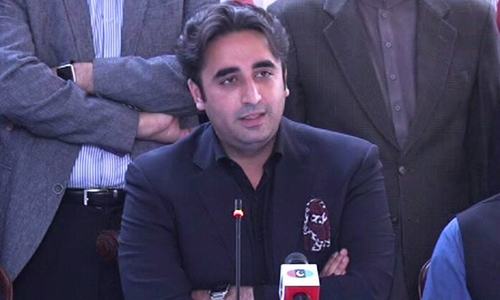WE are now approaching the outer limits of the hybrid experiment that was launched back in 2018. You don’t have to look far to see what is driving this. Start with the election results to see what the electorate is trying to say. Of the last 16 by-elections for national and provincial assembly seats since 2019, the PTI has been able to win in four, and one of those was not their own win but that of their allies (GDA in Larkana in October 2019).
More recent results show them losing margins in areas that they comfortably captured in 2018, and this despite the fact that they enjoy strong establishment backing and the benefits of being the ruling party (incumbency bestows considerable advantages, especially in Punjab, because voters traditionally feel a candidate from the ruling party is more likely to fetch them the benefits they seek). In some constituencies, like those from Karachi and one in Balochistan, they have not even been able to come in at second place.
Each one of these defeats is a trailer of what will happen in the next general election if present trends are not reversed, and this is one of the biggest drivers of the disquiet at the top. What are the changes that are required?
Look closely at one passing remark the State Bank made in its March monetary policy statement. The State Bank speaks like the Delphic Oracle when it comes to matters that are politically loaded so it is important to decode their words. The March statement, for example, contains a cryptic line that says “there is little evidence of de-anchoring of inflation expectations or economy-wide wage pressures.”
Each bypoll defeat is a trailer of what will happen in the next general election if present trends aren’t reversed.
In a briefing for analysts from the financial sector held later the same day, the State Bank expanded upon this line. Telling the analysts about the direction in which they see inflation going in the near future, the State Bank said “currently there seems no demand-side pressure and second-round effects are expected to remain subdued with real wage growth remaining close to zero” according to a note put out by Arif Habib Securities.
What are these words really saying? Real wages is a measure of how wages (for the working classes) are increasing relative to inflation. So if real wage growth is said to be “close to zero”, it means inflation and wages are increasing at the same pace, leaving worker incomes stagnant. The IMF goes a step further in its Staff Paper released a month later in early April. “Wages have continued their downward trend amid spare capacity in the labour market,” it says.
Something massive is being communicated through this highly technical language. “Spare capacity in the labour market” is a fancy way of saying ‘unemployment’. And stagnant real wages, or a downward trend in wages, means the masses are being increasingly impoverished, even as the government brags about its economic revival and trots out the familiar numbers to say that things are changing for the better in the country. According to a survey by the Pakistan Bureau of Statistics, the number of people who were “economically active” (meaning they had jobs) fell from 55 million before Covid to 35m after the pandemic hit. This is the “spare capacity” the IMF is talking about.
Now consider that this is happening at the same time as big corporations are reporting record jumps in their profits. In the last quarter of the year 2020, listed companies posted earnings growth of 36 per cent, at a time when the country was not out of the Covid woods. Some sectors like cement, fertiliser, power generation and automobiles reported profit growth in excess of 500pc, 100pc, 56pc and 190pc respectively in one year!
“Despite Covid, highest ever profits were recorded in [calendar year 2020] at PKR 672bn” reads a report from one of the brokerage houses presenting these results. This is at the heart of what is going wrong these days. Sales of sport utility vehicles are brisk and more luxury car brands are entering the market, while the working classes and the poor are struggling to feed their families and keep their heads above the poverty threshold. When you have stagnant (or declining) real wages and persistently high unemployment amid record high corporate profitability, you do not have a healthy economy, regardless of what the other indicators are telling you.
The government is bragging about its economic track record, saying the wheels of the economy have started to turn, but millions of people are struggling to survive in this economy, and it is these people giving a trouncing to the ruling party in one by-election after another. The electorate knows better than to swallow the government’s rhetoric.
A few days ago the Human Rights Commission of Pakistan noted in its annual report that “Covid-19 has aggravated existing inequalities in the country, leaving millions of vulnerable workers at risk of losing their livelihoods” according to a report in this paper. To those who ask me why all my writings are so negative, I ask only one question in return. What would you have me do? Whitewash this reality or whistle past it? Or present it as the inevitable outcome of circumstances beyond the government’s control?
Only a few weeks ago, Tabish Gauhar, the prime minister’s special adviser on power, was telling us that power tariff hikes are inevitable in order to control the circular debt. Yesterday we all heard Shaukat Tarin tell us he wants no further power tariff hikes, that he will find “another way” to control the circular debt. When the government itself cannot make up its mind on what is inevitable and what is not, how on earth am I supposed to do so?
The writer is a business and economy journalist.
Twitter: @khurramhusain
Published in Dawn, May 6th, 2021















































